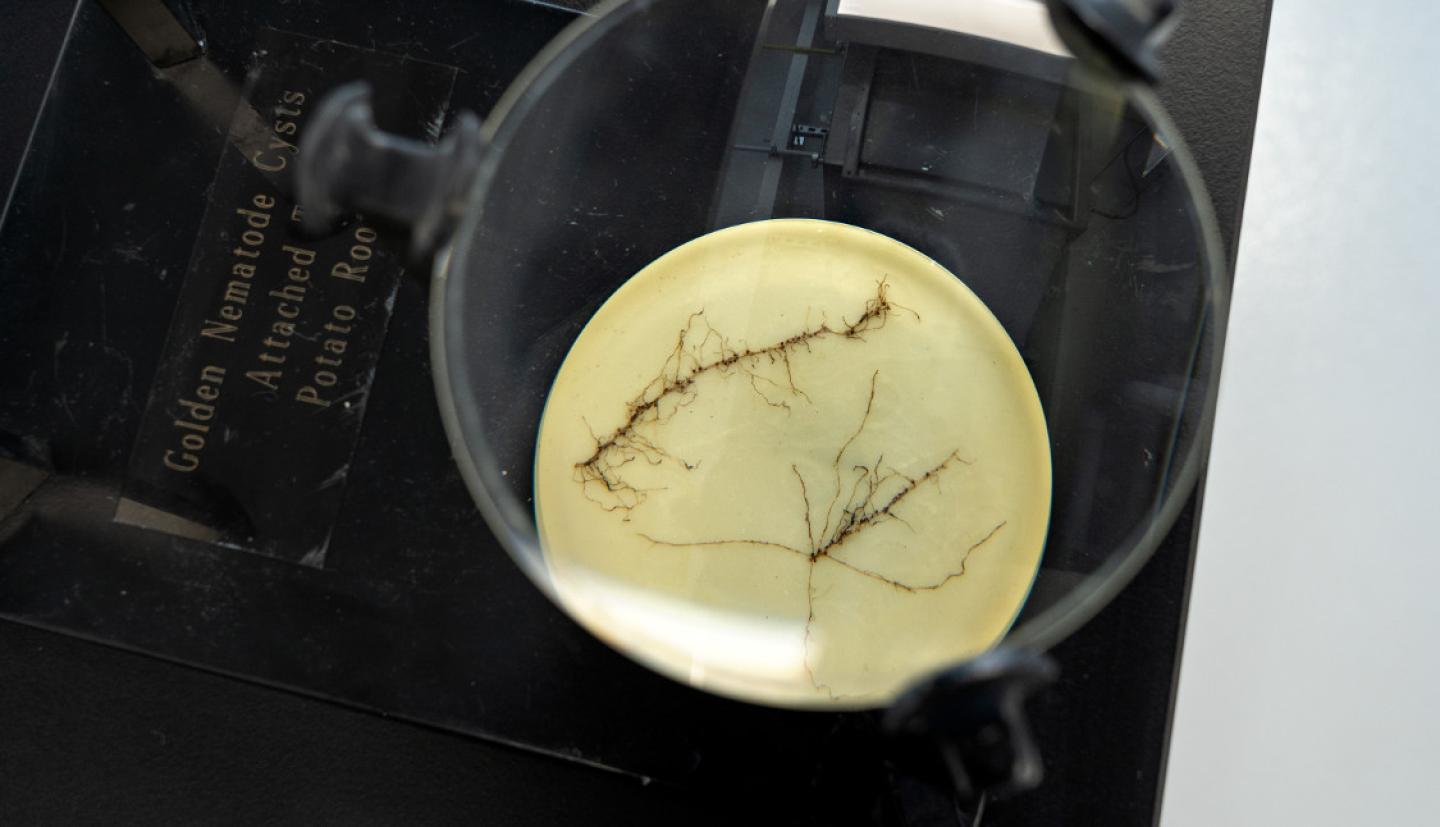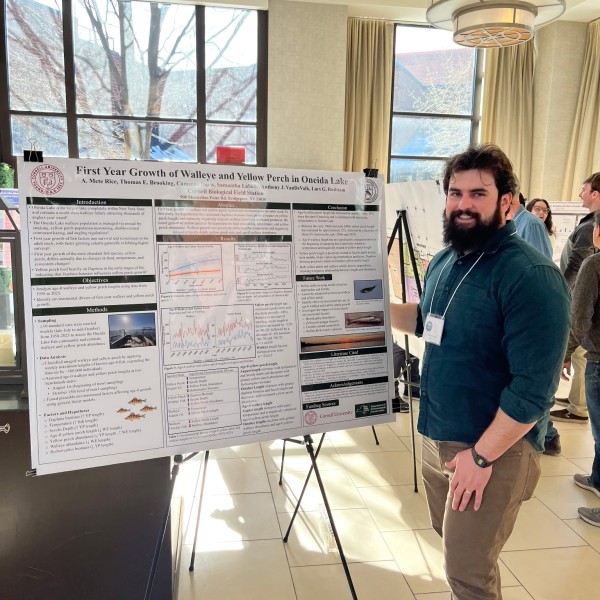For the last seven decades, Cornell University’s College of Agriculture and Life Sciences (CALS) has been leading the fight against nematodes—invasive, microscopic worms that can destroy seasons’ worth of crops. However, researchers had been working in a facility that lacked the infrastructure to keep pace with their innovative work.
On August 1, thanks to a $1.2 million grant from New York State and another $400,000 in federal funding, CALS cut the ribbon on the new Golden Nematode Quarantine Facility, located on the Cornell campus in Ithaca, NY.
The facility is the only research program in North America with expertise in biology, resistance breeding and management of potato-cyst nematodes. At the lab, Cornell scientists work in tandem with the U.S. Department of Agriculture (USDA) Agriculture Research Service (ARS).
“Cornell has always had the brain trust for dealing with the nematodes,” said Gary Mahany, former director of the Empire State Potato Growers Inc. and owner of Mahany Farms in Steuben County.
Mahany explained that in Idaho, the failure to quarantine pale-cyst nematodes has led to an ongoing ban on potato exports from certain counties. When pale-cyst nematodes were first discovered there in 2006, Canada, Japan, Korea and Mexico all banned potatoes imports from the state.
While nematodes have been in New York State since 1941, quarantine efforts have helped save the state’s $54 million potato industry. The facility at Cornell has also successfully bred over 20 different types of nematode-resistant potatoes, but some nematodes are adapting to these new varieties.
“We still need new, better varieties of golden nematode-resistant potatoes that are more accepted by our markets, which are potato chip markets,” said Mahany.






